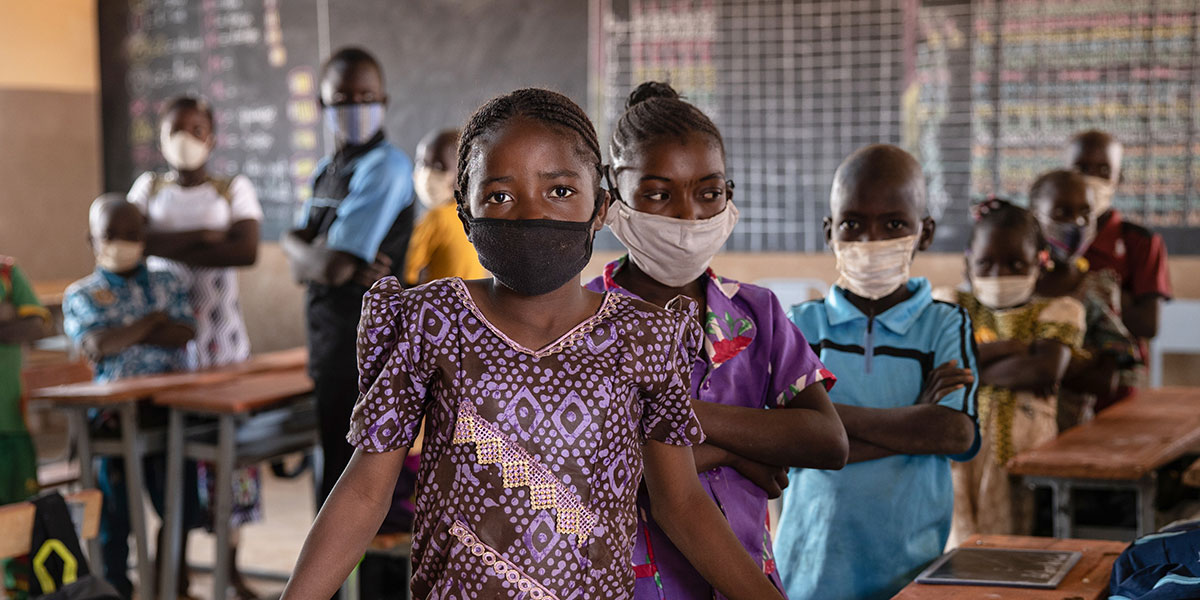The pandemic compounds the already bad situation of our continent. In terms of reported mortality resulting from the pandemic, the effect on Africa is relatively low when compared to some other continents.
However, the protocols for managing the COVID-19 pandemic, including lockdowns and movement restrictions established to reduce the spread of the virus and save lives, has impacted negatively and worsened the already fragile economies of African States.
The direct impact of the lockdown on families surviving on daily income has been agonizing, fuelling an increase in poverty levels and a rise in criminality and other related vices.
A call for a new African renaissance in multilateralism to promote sustainable peace and economic development is imperative. @GEJonathan
Tweet
Africa is weighed down by numerous challenges. We have unstable political systems caused by an unhealthy contestation for political power that has fuelled insecurity in our nations.
The legitimacy of many states has continued to be undermined leading to a crisis of trust amid the growing concerns of economic uncertainty, poverty, hunger and violent crimes. This is a major governance challenge being exploited by bandits and terrorists in many African nations.
Governments must therefore be deliberate in rebuilding trust in order to recover their states from the havoc imposed by the virus. Leaders have to engage citizens and stakeholders more than ever before, when initiating policies that directly affect the welfare of the people.
There has to be prioritization of human security issues, adherence to human rights and upholding of democratic virtues such as justice, equality and the rule of law and conducting credible and transparent elections will help restore the legitimacy gaps in our continent.
Africa needs healthy partnership with the developed world. We need initiatives that will promote businesses, entrepreneurship, trade as well as dialogue that will translate to actions to address our common problems.
A call for a new African renaissance in multilateralism to promote sustainable peace and economic development is therefore imperative. The huge success experienced in partnership among multilateral institutions and world leaders to combat the COVID-19 pandemic is a veritable case in point.
The issue of trust is very critical in the discourse of multilateralism. Today, developing countries now believe that the developed nations pursue their economic interest to the detriment of the economies of the developing nations.
For this reason, most advice from the Bretton Woods Institutions especially the World Bank and IMF, are accepted with a high degree of suspicion. There should be deliberate policies to address the issues of trade imbalance.
It is a good thing that some multilateral institutions like the World Trade Organisation (WTO), which incidentally now has an African head, recognise this imperative, and is considering ways of building confidence and promoting mutually beneficial cooperation at both ends of the global economic divide.
The support African nations continue to receive by way of aid may have helped the continent solve a few societal problems, but aid alone has not changed the face of Africa, neither has it translated to sustainable development. What will change Africa is industrialisation.
While I urge African nations to take the initiative of developing their economies in a sustainable manner through progressive leadership, I call on industrialised nations to support and encourage the establishment of cottage industries in Africa, just as they did and still do in other parts of the developing world.
Cottage industries that can process our raw materials such as minerals, farm and forest produce to some level in the value chain that will meet the global standard for export will benefit Africa more than aid in the long run. This will help create employment and sustainable livelihoods, jumpstart industrialisation and improve the economies of African countries.
The US and other super powers should look into the issues of proliferation of small arms and light weapons. As long as we allow the free movement of small arms and light weapons, the issue of banditry and other related crimes will continue to fester in developing countries and this will not augur well in our quest for sustainable peace and development. Activities of non-state actors have intensified within this period, owing to governments’ preoccupation with the health crisis in the midst of weak institutions.
As long as we allow the free movement of small arms and light weapons, the issue of banditry and other related crimes will continue to fester in developing countries. @GEJonathan
Tweet
A recent report attributed to the United Nations Regional Centre for Peace and Disarmament in Africa (UNREC) showed that 500 million illegal weapons are circulating in West Africa out of which 350 million (about 70 percent) are located in Nigeria. This is worrisome as it constitutes a threat to the peace and security of the continent, especially the West Africa sub-region. There cannot be appreciable peace with this volume of weapons in the hands of non-state actors.
There is the urgent need for the global management of the production and movement of small arms and light weapons, if the world must sustain relative peace. World leaders must therefore come together and establish an international treaty to control the production and movement of small arms and light weapons just as they have done for nuclear weapons.
To rebuild and recover our lands, we must first build hope in the lives of the people; because hope inspires love, love promotes peace, peace engenders justice while justice guarantees freedom and trust. These universal virtues are central to our quest for a peaceful and prosperous continent.
Dr Jonathan is the Chairman of the Goodluck Jonathan Foundation, Member, ECOWAS Council of the Wise, ECOWAS Special Envoy to Mali, Chairman, The International Summit Council for Peace (ISCP) Africa and former President of Nigeria, 2010-2015


